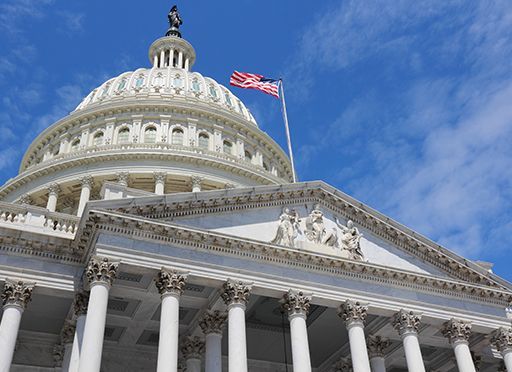Director of the Oxford Internet Institute Philip N. Howard issues a comprehensive, knowledgable report on the dangers of internet disinformation campaigns.

The Spread of Lies
In this sobering analysis, Philip N. Howard – the director of the Oxford Internet Institute and a professor of internet studies at Balliol College – finds that leaders worldwide, in both democracies and autocracies, deploy communications technologies to influence people. Individuals, companies and governments leverage algorithms and other computational means, he details, to create “lie machines” that spread disinformation. Howard argues that voters thus become less capable of informed and thoughtful political decisions. But he insists that people can fight back, and he suggests how to do exactly that.
The Financial Times wrote of Howard’s book: “Its central premise – that this new stage in the evolution of the web has political implications that will match or even outstrip its commercial ones – is both striking and convincing.” David Kaye, UN Special Rapporteur on Freedom of Expression, commented that Howard, “refusing to wallow in the dystopia of it all…produces a must-read for the moment and a blueprint for the future.” Frank Pasquale, author of The Black Box Society, noted that Howard provides “cutting-edge research on disinformation and computational propaganda in a vivid, compelling manner.”
Political Purposes
A lie machine, Howard teaches, combines communities, organizations and advanced technologies to promulgate falsehoods in service of a political agenda. Lie machines, he explains, deploy “computational propaganda” that uses algorithms to create, disseminate and sell disinformation.
Purposefully organized ignorance may end up destroying our ability to deliberate sensibly. Philip. N. Howard
Lie machines persuade people that lies are the truth. As a result, Howard notes, lie machines alter appropriate responses to significant public issues, and they undermine individuals’ and institutions’ authority and legitimacy. In 2016, he attests, most democratic countries deployed lie machines to distort people’s views of public issues. Lie machines are effective, Howard clarifies, because they create false accounts that in some ways correspond to known facts and are therefore believable.
Disseminating Disinformation
Social media platforms are ideal, Howard explains, for disseminating fabrications because they leverage people’s personal ties with one another.
No one thought that social media could be used to threaten so deeply the primary exercises of democracy.Philip N. Howard
Political interests manipulate people, the author demonstrates, by combining social media tools with data drawn from individuals’ credit card histories, credit reports, social media profiles, political contribution records, and more. These statistics fuel “microtargeting”: the creation and delivery of customized messages to individual voters or consumers.
Howard cites how, in 2016, Brexit promoters spread falsehoods and Donald Trump promoted conspiracy theories about Hillary Clinton. Russia, Howard reveals, sponsored divisive social media campaigns in the United States, United Kingdom and elsewhere.
As a leader in the use of media control and manipulation, Russia made the first big, creative investments when it put the algorithms of Facebook, Twitter and Instagram to work in a lie machine.Philip N. Howard
Howard regards Vladimir Putin’s government as the first to develop and fund a professional lie machine. He relates how, under the guidance of Russia’s Internet Research Agency, Russian trolls generated content that inflamed US political polarization. Howard gets to the heart of the matter when he cautions that Russia’s approach worked so well because it leveraged algorithms that social media companies had created.
The author recounts how social media firms claim the disinformation they distribute has no meaningful impact on elections. He makes a crucial point: Lie machines don’t care about having across-the-board influence on public opinion or elections. They pursue “network-specific effects” to change the minds of particular individuals in specific areas.
Deceit
Howard details how, during the 2016 US election season, Twitter bots and fabricated Facebook groups circulated the myth that Hillary Clinton belonged to a cabal of pedophiles operating from a Washington, DC, pizza parlor.
There is a long history to fake news production, but in the past, it was mostly used in times of war and crisis.Philip N. Howard
Howard explains that, though fact-checkers discredited the story, many people still believed it. Automated social media accounts, he shows, can spread disinformation at incredible speed. Howard laments that Facebook became the principal venue for divisive and hateful speech.
Measuring the impact of how political information is presented over social media is tough. The social media firms don’t admit how much they can affect people when it comes to political opinion.Philip N. Howard
Authoritarians and lie machines, Howard makes clear, choose platforms like Facebook, Twitter and Instagram on which to share messages so that no one in the mainstream or broader media can interpret or confirm the messages’ veracity.
Disable Them
Lie machines are menaces to democracy, Howard asserts, because they keep people from developing sincere, informed opinions on crucial issues and from making clear-headed voting decisions. Lie machines, he underscores, exploit human emotions and weaknesses, and they manipulate psychological biases that short-circuit individuals’ capacity to reason.
Dismantling lie machines will require new flows of data between our devices and the public institutions and civic organizations we want to support.Philip N. Howard
Citizens must understand how lie machines function, Howard maintains, to be able to stop or undercut their success. Public agencies, he asserts, should have the authority to audit social media algorithms, and individuals must demand control over their data.
Wheelhouse
This issue is squarely in Howard’s wheelhouse: He teaches courses on the internet at one of the world’s most prestigious universities, and his other books address the history of the digital world in government. Howard offers a clinical, journalistic accounting of lie machine activities, but he shows passion in later chapters, as he calls on citizens to stand up for the truth. The bulk of his book functions as both a comprehensive and valuable textbook for students at the high school and college levels, and a powerful overview of this crucial subject for journalists, teachers and concerned citizens. And every citizen should be concerned.
Philip N. Howard is also the author of Pax Technica, The Digital Origins of Dictatorship and Democracy, and Castells and the Media. Other works dealing with similar themes include The Black Box Society by Frank Pasquale, Active Measures by Thomas Rid and The Age of Surveillance Capitalism by Shoshana Zuboff.






